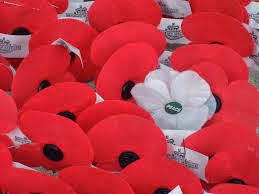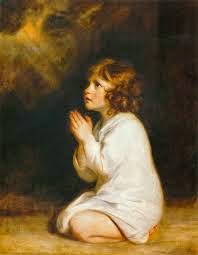At times it seems as if a shared understanding may be helpful. At other times however it can be most unkind to imply a comparison with more extreme situations people are going through right now. These days I look back on those experiences which made me the person I am now. They made me realise strength that I did not know I had before. Some of those happenings you would in no way choose but when things are good, happy and peaceful, you tend to appreciate it more. For those caught up in troubles, it must be very hard to imagine good, happy peaceful times ever happening again, but I honestly believe that Light will eventually triumph over darkness.
Until such a time, it does seem so important to remember those who are suffering, likely to be very frightened, and despairing of human nature. George Fox went through such a time. he called it the "ocean of darkness." A Muslim friend called this a time of great 'fitna', the Arabic term for trials and tribulations. When confronted by such suffering, it can be very hard finding the right thing to say.
There may be a temptation to talk about our Quaker peace testimony. We could step in as impartial observers, offer to arbitrate and get people to talk to each other. At times it may be very helpful for a third party to identify some aspect of common ground on which it is possible to build. There will always be room for a foundation. Perhaps because the human race is a family all growing up together, that we tend to fall out most easily with our siblings.
Peace-makers can seem very helpful so long as you are in a good position to bargain. If you are feeling threatened, the very last thing you want is for some do-gooder with very limited knowledge to talk of conflict resolution and bring your enemy nearer.
That brief telling off to the school bully, being told to shake hands to someone who twists your wrist in doing so, bringing the abusive partner home after a telling off and ride in the police car, telling you to vote when there is no guarantee of safety, offering a gun amnesty when there would seem no other defence but to have the means of dispatching a bullet near you. These characteristics among peace-makers can give you nightmares. Human Beings are no different from any other species. Our primary concern is safety. When you are on the receiving end of an injustice, that commodity most necessary to your condition is power. Because we do not have all the evidence or know the answers, it always worries me whenever I see Quakers taking sides.
It would seem quite ironic that one of the usual ways of resolving this situation is by talking about belief. This process can feel amazing, but only if you are the person doing all the talking, or, at the very least, have been invited to do so. Those on the receiving end, experiencing perhaps a very different kind of spiritual journey, may not have the means to imagine quite what you mean by "God." The term "Our Father" can sound very different to the child of an abusive parent. It is possible to leave a victim even more dis-empowered, isolated and unhappy by talking about religion.
The other mistake people often seem to make is by providing the wrong kind of weapon. This process usually involves something to carry about that explodes and may create lots of casualties around you. It may be what people ask for but strength in a human being comes from the inside. In some ways I would liken violence to the use of drugs or alcohol. These provide temporary relief or an illusion of power. They have very little to do with proving a point, providing a solution or making anyone stronger.
It seems helpful to remember that Quakers have always been motivated by stubborn, plain-speaking, uncompromising truth. Strategically we might exploit any point of weakness in the aggressor since those who use violence seem content with second best. Truth however allows for many different perspectives. Those who adopt violence are so often victims themselves. When you are caught up in a cycle it is quite impossible to judge.
Perhaps in our confusion, we step might back, choosing instead to make gestures, rather than try to resolve anything. This would seem to me as being an honest approach and likely to do least damage. Symbols of peace can raise awareness even though we might seem somewhat ineffectual to others.
Increasingly I have found myself wanting to tell other people how I see then. This morning a picture was conveyed through social media of the old castle on Tripoli sea front. Its a facinating building. There used to be a zoo there. Every sunset during the month of Ramadam a gun used to fire from castle across the harbour. Those hungry and thirsty from fasting must have been so relieved to hear the sound of gunfire but they hear it often now.
I remembered how the old Souq (market) with its narrow streets, and very beautiful houses was situated just behind the castle. The people I saw there used to amaze me with their skill, craftsmanship and patience. I remember the sound of chisels rhythmically tapping away, and the creaking of a wheel turning round as craftsmen put decorations on brass plates.
There were bracelets that I wore made with thousands of tiny beads and so many different things they could make with leather. I had a little braided camel that I loved. The patterned wool rug I have on my floor right now must be over 40 years old and it still looks like new. I remember the place where it was hanging the day that we bought it. I remember Fezzan dates filled with almonds and shaped into a block. They can make the best bread in the world in Libya using clay ovens. If you have ever seen the traditional way of making tea in Libya, you would know how patient Libyans can be. Those who are able to make tea always seem to have a role in a crisis.
Whenever I saw anyone riding a camel it used to amaze me. Humps wobble about a lot and very grumpy camels spit a long way when they don't like you. Its not at all like being on a horse. Those able to ride camels understand the importance of leadership, using the right kind of control on a stubborn, bad tempered, frightened animal. I remember how cleverly Bedouin tents were made, to be put up and taken down so many times, using every available resource. There was the best taxi service ever in Tripoli with beautifully dressed horses who wore hats to keep out the sun. When people talk about armed gangs roaming about the streets of Tripoli, and private armies, I would like the rest of the world to know that the people of Libya are amazing. Those tribes are so interesting, talented and diverse. I wish that I knew more about them. I wish someone would write about them more, but can tell you now, fighting is not the only thing they can do.
As a Quaker, I understand the importance of power. When people say something good or kind about me, I am empowered. In turn this gives me the strength and capacity to pass on power to others. Kindness, is like a car suddenly getting filled up with petrol. Kind words can also travel far.
It would seem to me that Quakers talk a great deal about power. Like so many other faiths, we have identified a limitless resource.
Love allows us the strength to be fully honest, transforms the way we see each other. Love gives us the power to fulfil our potential, Love allows us to forgive. Love mean we can always give away and still find we plenty more. Love allows us to see a way through conflict situations. Love does not need second best.
To me, peace on its own is not enough. When you are up against anything it is necessary to employ power. We may loose our credibility, at times feel pretty daft, but are not supposed to have all the answers, win or try to impress anyone. It would seem to me our role as peace-makers is about giving something of ourselves away, responding to people as they really are, washing the feet of others.






































